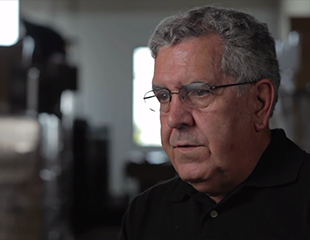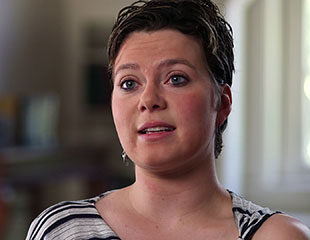Coping With Survivor Guilt
3-minute read
Coping With Survivor Guilt
3-minute read
Guilt is a feeling of responsibility for bad events, whether that feeling is realistic or not. Some Veterans feel guilt or remorse because of something that happened in their military experience, such as an injury to a buddy in their unit, friendly fire, or civilian deaths. Survivor guilt can include feeling guilty about surviving when others did not, wishing that you had died instead of others, or thinking you didn’t deserve to survive.
“Any wounded Veteran would always tell you they wanted to go back,” says Stan, a U.S. Marine Corps Veteran. “We were leaving our team, and that wasn’t acceptable.”
Feelings of guilt may be related to stress, anxiety, and depression, and the effects can interfere with your everyday life, making it hard to get through the day.
“I just didn’t have the same fervor for life,” says Javier, a U.S. Marine Corps and Army National Guard Veteran. “That guilt just kind of dictated what I did and how I felt, and it’s taken years to even get to a point where I feel worthy of coming back. … The guys that I served with, that aren’t here anymore, they were amazing people. … I owe it to them to come back and live.”
Moving Past Survivor Guilt
If you find yourself living with guilt or remorse about a past situation, try to set aside time to think about your feelings. If you are having trouble forgiving yourself, talking to your family and friends may be a good first step. Many people find that sharing regrets or guilty feelings with another person helps them overcome them.
These steps might also help you cope with feelings of guilt:
- Remind yourself that everyone thinks of things they would do differently if given the chance, but no one can change the past or predict the future. Many things that may seem clear now would have been impossible to predict at the time.
- Discuss what happened with others who were there. Sometimes guilt can change the way you remember things and make you feel more responsible than you actually are.
- Remind yourself that you did the best you could, given your circumstances at the time.
Identifying productive ways to act on regrets — finding a way to pay tribute to the fallen, for example — can help you find peace with past events.
“One of the things that really helped a lot is writing a letter to those who have gone on,” says Javier.
Counseling and other forms of treatment, such as prolonged exposure therapy, can also empower Veterans to work through painful memories in a safe, supportive environment.
“[Prolonged exposure therapy is] where you go back to a traumatic event that’s bothering you and recall it, recall it, recall it and just keep repeating it and reliving it until it seems normal to you,” says Scott, a U.S. Navy Veteran. “Then you bring it down to a common level and you can deal with it. It seemed to help quite a bit.”
Seeking treatment and opening up about the past can help you get back to living a fulfilling life.
“I’ve been in [with] all kinds of counselors and therapists,” says Ron, an Army Veteran who lost his brother in Vietnam. “Some of them recommended writing. Some of them recommended doing collages. Some of them do art therapy, group therapy. And VA offers all of it … they all help.”


